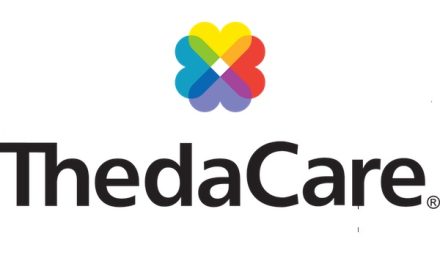
Aurora St. Luke’s Medical Center is 1st in southeast Wisconsin to offer MRI-safe cardioverter defibrillators to treat sudden cardiac arrest
Milwaukee, Wis. – Aurora St. Luke’s Medical Center, a world-class medical destination that has pioneered heart health in Wisconsin for more than five decades, is the first hospital in southeastern Wisconsin to implant new implantable cardioverter defibrillator (ICD) systems in patients that are safe for magnetic resonance imaging (MRI) scans.
Two patients received the new Evera MRI™ SureScan® ICD System from Medtronic, which were approved by the U.S. Food and Drug Administration on September 14, 2015, following multiple months of clinical trial periods. Aurora St. Luke’s was one of a select number of sites in the world to participate in the clinical trial.
An ICD is a small, implantable heart device that is placed under the skin, typically just below the collarbone on the left side of the chest. They are normally recommended for patients at risk for a life-threatening cardiac arrhythmia or sudden cardiac arrest. ICDs help to continuously monitor heart rate and deliver an electrical signal to correct a life-threatening heart rate, if detected.
Until recently, patients with ICDs have not been able to receive MRI scans because of potential interactions between the MRI and the device leading to device malfunction. This was a major limitation since data shows that more than one-third of patients with ICDs are likely to need an MRI in their lifetime.
MRIs are among the most commonly used imaging tests used for a wide range of diagnoses including conditions such as stroke, cancer, Alzheimer’s disease, and muscle, bone and back pain, all which are prevalent among older adults.
The new MRI-safe ICDs will ensure better access to the latest in medical imaging for patients who previously were not candidates for MRI scanning due to their defibrillator.
“Patients who require ICDs are often older adults with other serious medical conditions that may need an MRI for diagnosis,” said Dr. Vikram Nangia, a cardiologist with Aurora Health Care who helped to spearhead both the clinical trial and the first implants. “This game-changing technology will help our team at Aurora St. Luke’s more effectively treat patients at high risk for cardiac arrest and enable patients to have better access to MRIs, allowing us to provide even higher levels of care.”
The new ICD devices are just one of many heart health innovations being pioneered at Aurora St. Luke’s Medical Center, including:
- The largest and most experienced Transcatheter Aortic Valve Replacement (TAVR) program in Wisconsin, performing more than 600 cases with a 100 percent implementation rate.
- The first hospital in world to use new 4D cardiovascular ultrasound technology from GE Healthcare, helping to see the heart like never before.
- The first hospital in Wisconsin to implant a minimally-invasive leadless pacemaker, offering faster recovery time for patients.
- The first heart transplant in Wisconsin in 1968, and since 1982, more than 800 total transplants, more than any other health care system in the state.
- A leader in Ventricular Assistant Devices (VAD)s installation in patients with Advanced Heart Failure, having installed more than 700 VADs in the past four years.
- Leading more than 500 clinical trials to help find better ways to treat patients suffering from chronic heart conditions.
Aurora Health Care’s world-renowned heart and vascular team consists of specialists who use state-of-the-art tools and technologies to provide early diagnosis and advanced cardiac care, including surgical and non-surgical treatment options, as well as hybrid heart procedures.
About Aurora Health Care:
Aurora Health Care is a not-for-profit Wisconsin-area health care provider and a national leader in efforts to improve health care quality. Aurora offers services at sites in more than 90 communities throughout eastern Wisconsin and northern Illinois. Aurora is Wisconsin’s most comprehensive health care provider and the state’s largest private employer. Aurora serves more than 1.2 million patients every year via a comprehensive network of facilities, services and providers, including 15 hospitals, 159 clinics, 70 pharmacies and 30,000 amazing caregivers. As evidenced by more than 400 active clinical trials, Aurora is dedicated to delivering innovations to provide the best possible care today, and to define the best care for tomorrow. Get helpful health and wellness information via the Aurora MyHealth blog, our Facebook page, our Twitter account and our Pinterest account.





